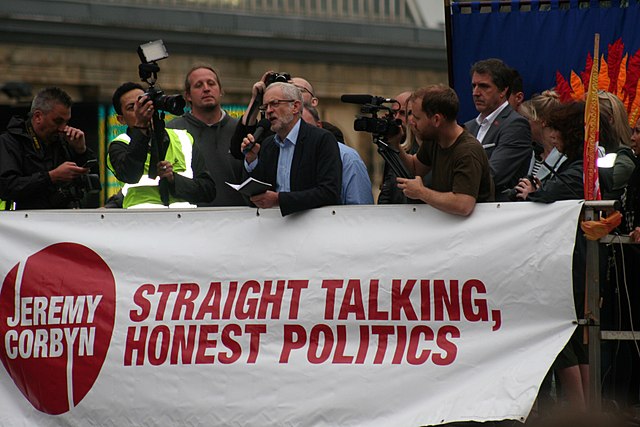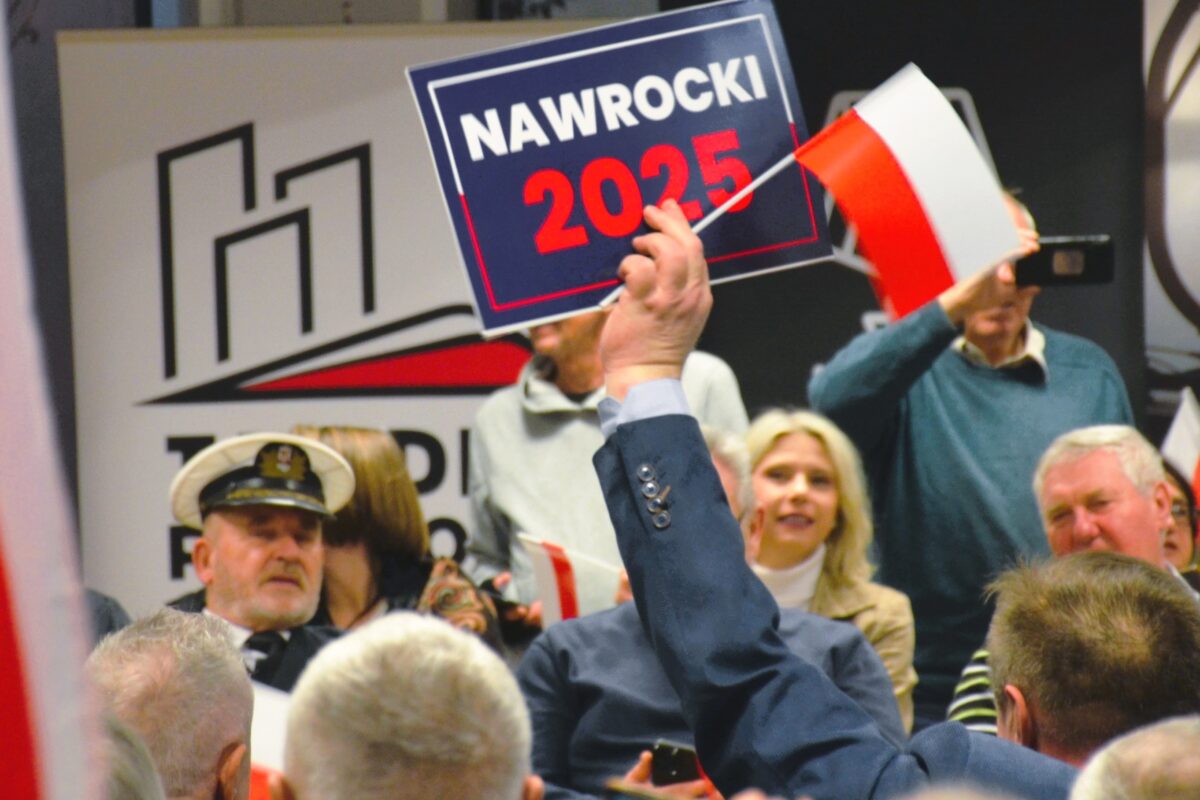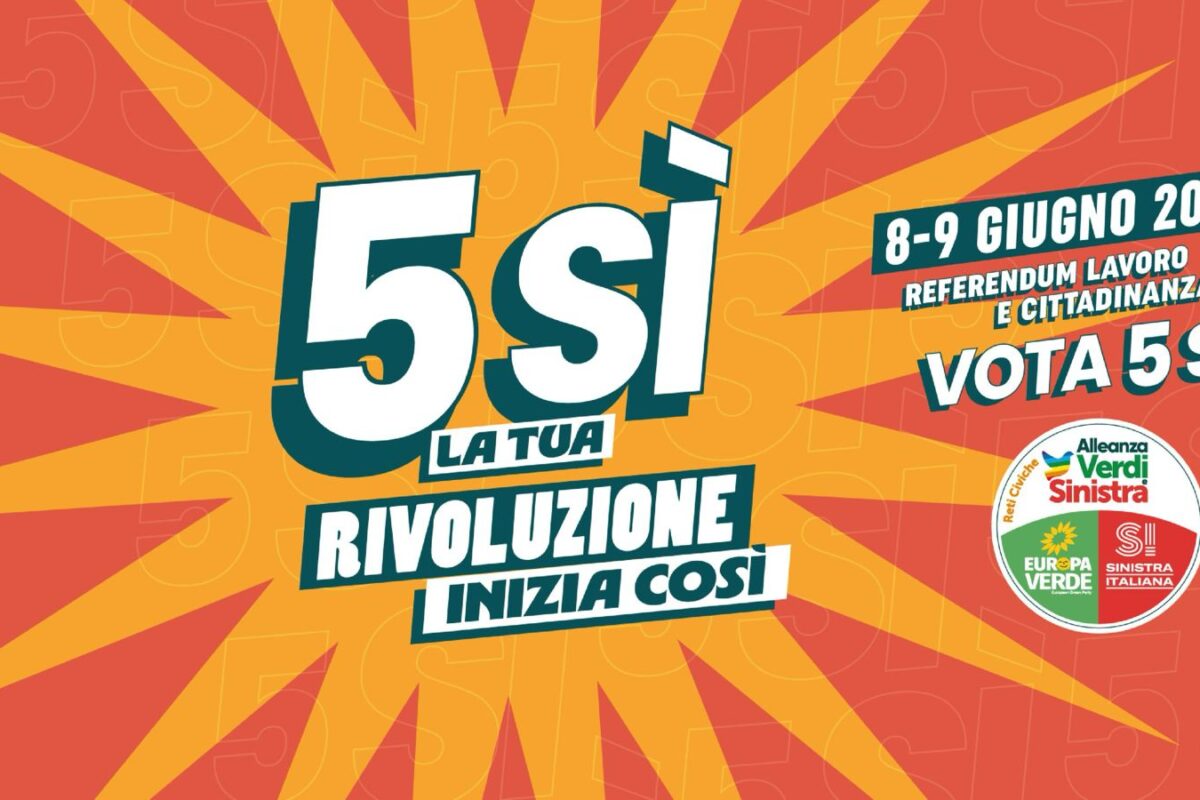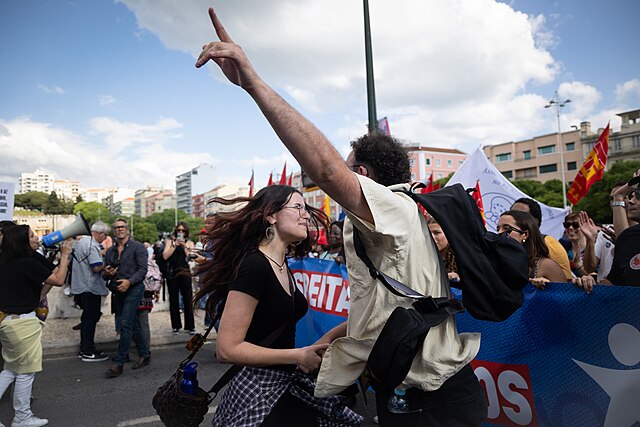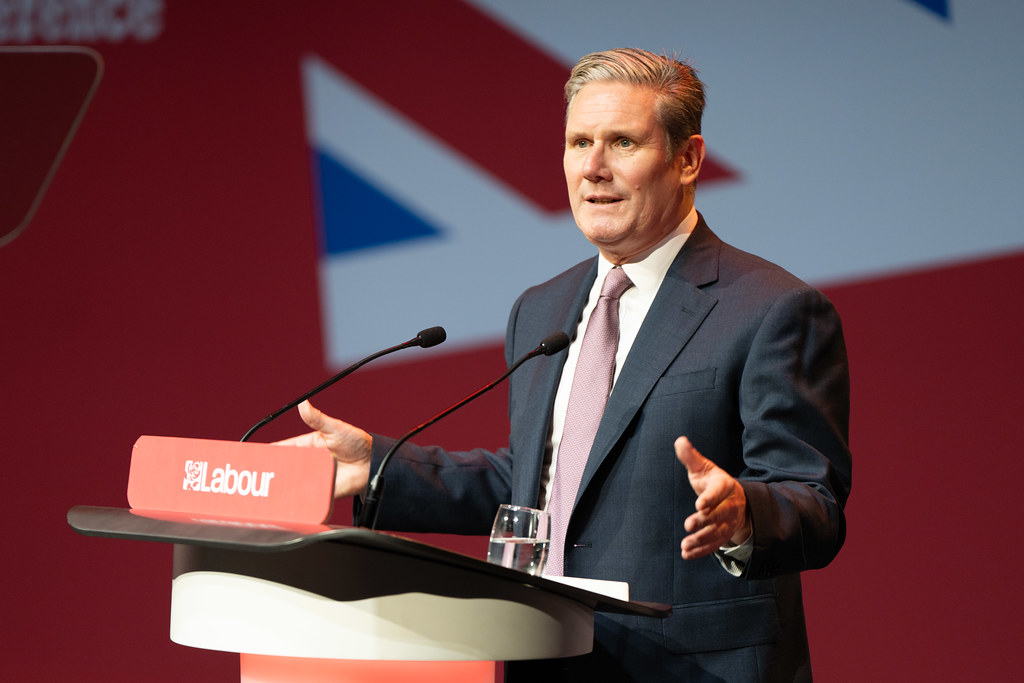Introduction: Sarah Alemu from Wedding, Berlin, was in Edinburgh to witness an interview with Jeremy Corbyn. This is her report.
The Edinburgh fringe festival is the world’s largest theatre festival. It takes place every year in August in the Scottish capital. As part of this year’s festival, Scottish journalist Graham Spiers spoke on 9th August with Jeremy Corbyn, the former leader of the British Labour Party and MP for Islington North in London.
Like other events in the festival, the meeting was limited to just 60 minutes. The Grand Hall of the Stand’s New Town theatre was full to capacity – outside you had to wait for 45 minutes in a long queue of young and old people who were clearly Corbyn fans.
Spiers began by asking Jeremy what would have been different if he had become prime minister in 2017 or 2019. Corbyn replies that things would be very different. The first thing that he would have done, and which should be the duty of every government, would have been to help the many homeless people in the country.
He stated that life would also have been better for many young people. At present, many are looking at a very uncertain future, particularly in England, where they still have to pay tuition fees, and leave University with large debts.
Labour is very popular among young voters under 30. It had been more of a problem to appeal to older voters, which according to him needs to be worked on in the future.
Corbyn spoke of further core tasks of his politics, such as fighting inflation, getting the gas problem under control, job security, wage increases, and more social justice in general. In recent years, the gap between rich and poor has widened – wages have been falling in the last ten years. The need to revoke the Conservative Party’s anti-union laws.
Corbyn received much applause when he said that it was not wage rises which had caused the current immense inflation, but the profit-making of those who already have a lot. When asked why he had lost the election, he blamed great resistance against himself. Rich and influential people did not want a Labour Party with progressive politics. He estimated that at the beginning of his election campaign, 90% of the press were against him.
Corbyn only spoke briefly about resistance within his own party. Overall he seems to be cautiously optimistic about the future of his politics. As an example, he referred to the slowly increasing membership of trade unions. He also said that within Labour, an internal party debate is necessary.
So, he said, MPs must have a closer connection to their constituencies. The current problem with the Tories is that they lack this closeness to the people. It is frightening how little care they show. This is an opportunity for the Labour Party.
Corbyn also mentioned the health system, and in particular care. He went on to say that state control over the housing market is an important part of left-wing politics. It is not acceptable to leave rent rises to the market – this would lead to an explosion of costs, as we can see in Edinburgh.
Asked about the renewed referendum for Scottish independence, he replied that Scots must have the right to decide for themselves whether they want to live in an independent state. However, he conceded that his government would have made more money available to the Scots. It sounded like he hoped that Scotland would vote against independence. But the “Better together” campaign of the Scottish Labour Party, together with the Conservatives had been a huge mistake.
The Brexit campaign also weakened the Labour Party. There were Labour strongholds which voted for Brexit. Labour would not have been able to convince them with the aim of staying in the EU.
The interview lasted for approximately 40 minutes, after which there were 20 minutes for questions from the public. One of the first questions asked Corbyn for his views on refugee politics. Corbyn clearly called for the right of refugees to stay. It is not illegal to ask for asylum.
However, he saw a problem with the way in which refugees from different countries are treated unequally. If something applies to Ukrainian refugees, for example, it should also apply to refugees from Iraq, from Afghanistan, from Palestine, etc.
Asked about the chances for a change of government, Corbyn was cautiously optimistic. The Labour Party could win the next election. However, for this to happen, they need a credible programme which is close to the people and with the growing inequality in the country as a central issue.
Asked to elaborate more, Corbyn mentioned four big themes that should be central to Labour’s election campaign – housing the homeless, taking the “Big Five” (electricity, gas, rail, post and water) into public ownership, investing in social housing and controlling private rents.
After exactly one hour the meeting ended with standing ovations. Unfortunately, Corbyn left the stage very quickly, and since photography during the interview was strictly forbidden, interested observers were left with a stage containing two antique chairs in the centre.
Translation from the original German: Phil Butland
